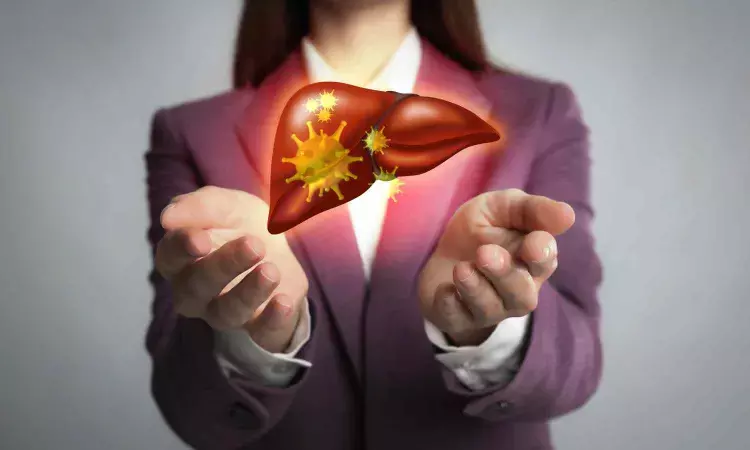- Home
- Medical news & Guidelines
- Anesthesiology
- Cardiology and CTVS
- Critical Care
- Dentistry
- Dermatology
- Diabetes and Endocrinology
- ENT
- Gastroenterology
- Medicine
- Nephrology
- Neurology
- Obstretics-Gynaecology
- Oncology
- Ophthalmology
- Orthopaedics
- Pediatrics-Neonatology
- Psychiatry
- Pulmonology
- Radiology
- Surgery
- Urology
- Laboratory Medicine
- Diet
- Nursing
- Paramedical
- Physiotherapy
- Health news
- Fact Check
- Bone Health Fact Check
- Brain Health Fact Check
- Cancer Related Fact Check
- Child Care Fact Check
- Dental and oral health fact check
- Diabetes and metabolic health fact check
- Diet and Nutrition Fact Check
- Eye and ENT Care Fact Check
- Fitness fact check
- Gut health fact check
- Heart health fact check
- Kidney health fact check
- Medical education fact check
- Men's health fact check
- Respiratory fact check
- Skin and hair care fact check
- Vaccine and Immunization fact check
- Women's health fact check
- AYUSH
- State News
- Andaman and Nicobar Islands
- Andhra Pradesh
- Arunachal Pradesh
- Assam
- Bihar
- Chandigarh
- Chattisgarh
- Dadra and Nagar Haveli
- Daman and Diu
- Delhi
- Goa
- Gujarat
- Haryana
- Himachal Pradesh
- Jammu & Kashmir
- Jharkhand
- Karnataka
- Kerala
- Ladakh
- Lakshadweep
- Madhya Pradesh
- Maharashtra
- Manipur
- Meghalaya
- Mizoram
- Nagaland
- Odisha
- Puducherry
- Punjab
- Rajasthan
- Sikkim
- Tamil Nadu
- Telangana
- Tripura
- Uttar Pradesh
- Uttrakhand
- West Bengal
- Medical Education
- Industry
SIRS score predicts mortality risk of liver cirrhosis patients with hepatic encephalopathy: BMC

A new study published in the journal of BMC Gastroenterology revealed that Systemic Inflammatory Response Syndrome (SIRS) and Model for End-Stage Liver Disease (MELD) score more than 18 were found to be independent predictors of death in patients with cirrhosis and hepatic encephalopathy (HE).
The clinical relevance of systemic inflammatory response syndrome in patients with cirrhosis and hepatic encephalopathy is still unknown, despite the fact that SIRS is linked to the advancement of cirrhosis. HE presenting with mental disorders is a common and sometimes lethal symptom among individuals with decompensated cirrhosis. Thus, this study aimed to report the prevalence of SIRS in cirrhotic patients with HE and explore how SIRS affects prognosis in this patient group.
A total of 161 hospitalized patients with cirrhosis and HE had their clinical data examined. Among the patients of this study, 40 (24.8%) passed away while in the hospital, and 60 (37.3%) acquired SIRS. The following were risk variables for hospitalization-related deaths based on univariate Cox analysis: SIRS, WBC, neutrophils, neutrophil/lymphocyte ratios (NLR), alanine aminotransferase (ALT), serum total bilirubin (TBIL), aspartate aminotransferase (AST), international normalized ratio, creatinine (Cr), and a MELD score > 18.
The significant independent risk variables were SIRS and a MELD score more than 18 (hazard ratio 4.758, 2.539; 95% CI 2.115–10.703, 1.210–5.331; P < 0.001, P < 0.05, respectively). For SIRS scores of 0, 1, 2, 3, and 4, the corresponding 28-day survival rates were 95.8%, 89.6%, 61.1%, 37.5%, and 12.5% (P < 0.001).
The death rate for patients with a MELD score of < 18 was 30% for those with SIRS and 7% for those without. Mortality was 62% in individuals with SIRS and 16% in patients without SIRS when a MELD score was greater than 18 (P < 0.001). Mortality among uninfected individuals was 43% for those with SIRS and 4% for those without. The death rate among infected patients was 53% among those who satisfied SIRS diagnostic criteria and 19% among those who did not (P < 0.001).
Overall, this research discovered that SIRS is a prevalent, independent risk factor for mortality among hospitalized LC patients with HE, whether or not there is an infection. These findings highlight the significance of HE as an early risk indicator for LC patients' in-hospital HE-related deaths.
Reference:
Zhang, K., Qu, Z., Tang, R., Dong, H., Fan, J., & Ye, W. (2025). Correlation between systemic inflammatory response syndrome and prognosis of patients with cirrhosis and hepatic encephalopathy. BMC Gastroenterology, 25(1), 536. https://doi.org/10.1186/s12876-025-04141-1
Neuroscience Masters graduate
Jacinthlyn Sylvia, a Neuroscience Master's graduate from Chennai has worked extensively in deciphering the neurobiology of cognition and motor control in aging. She also has spread-out exposure to Neurosurgery from her Bachelor’s. She is currently involved in active Neuro-Oncology research. She is an upcoming neuroscientist with a fiery passion for writing. Her news cover at Medical Dialogues feature recent discoveries and updates from the healthcare and biomedical research fields. She can be reached at editorial@medicaldialogues.in
Dr Kamal Kant Kohli-MBBS, DTCD- a chest specialist with more than 30 years of practice and a flair for writing clinical articles, Dr Kamal Kant Kohli joined Medical Dialogues as a Chief Editor of Medical News. Besides writing articles, as an editor, he proofreads and verifies all the medical content published on Medical Dialogues including those coming from journals, studies,medical conferences,guidelines etc. Email: drkohli@medicaldialogues.in. Contact no. 011-43720751


